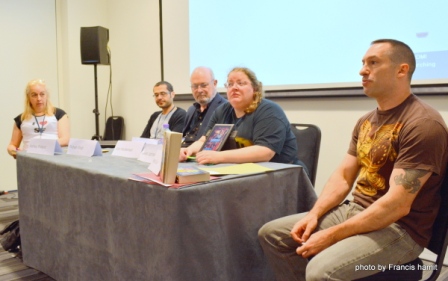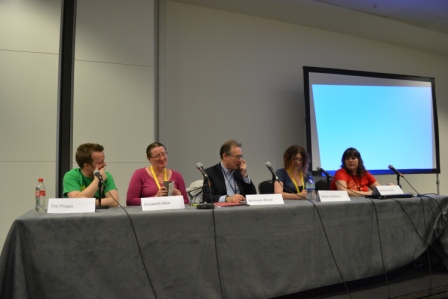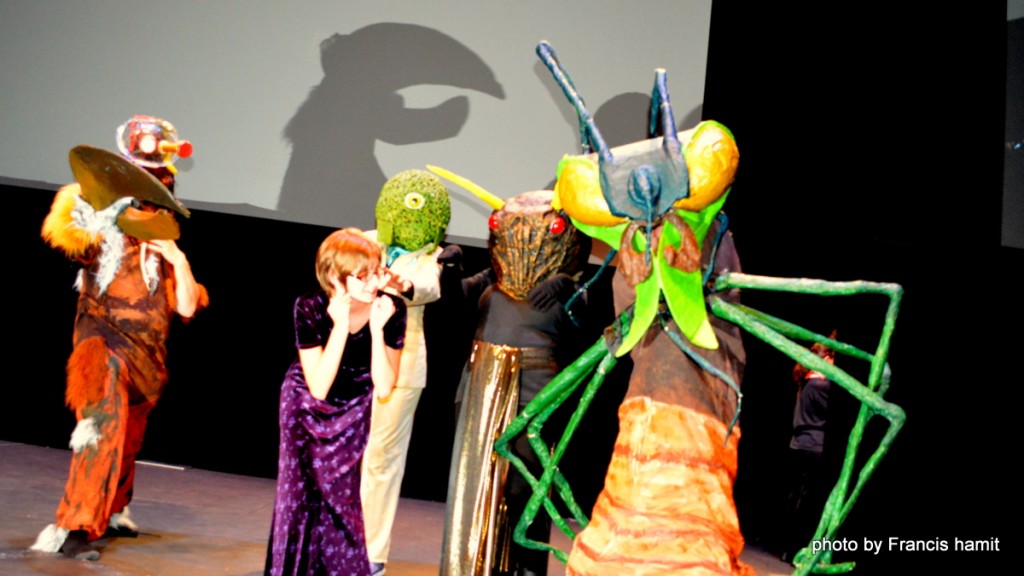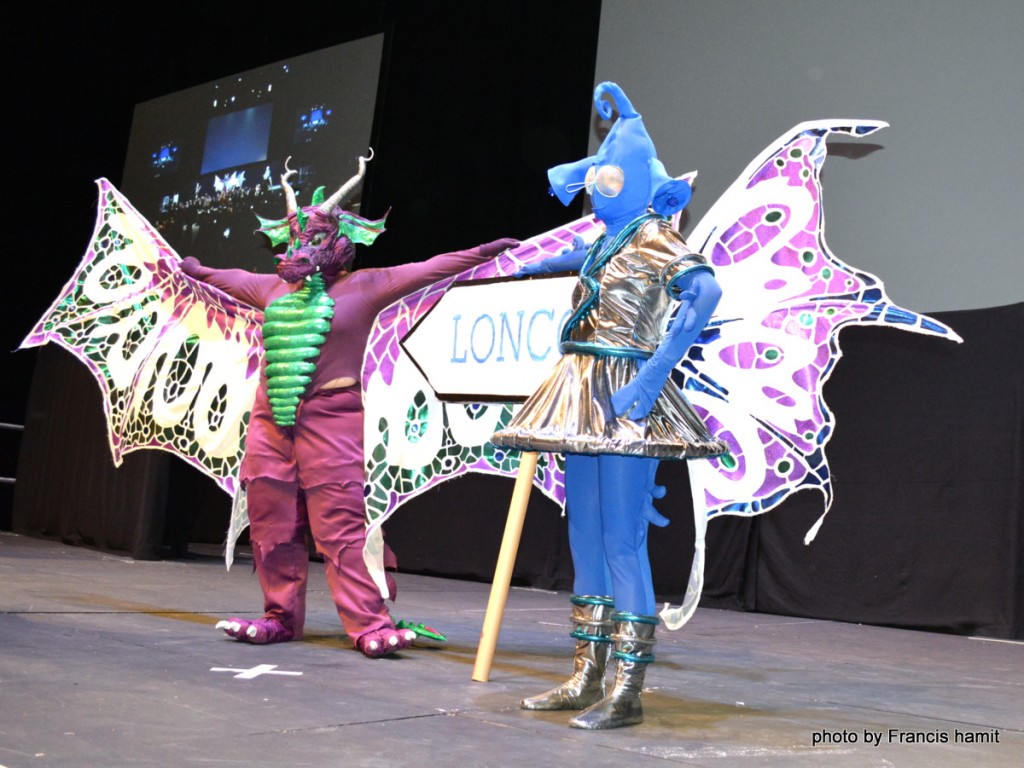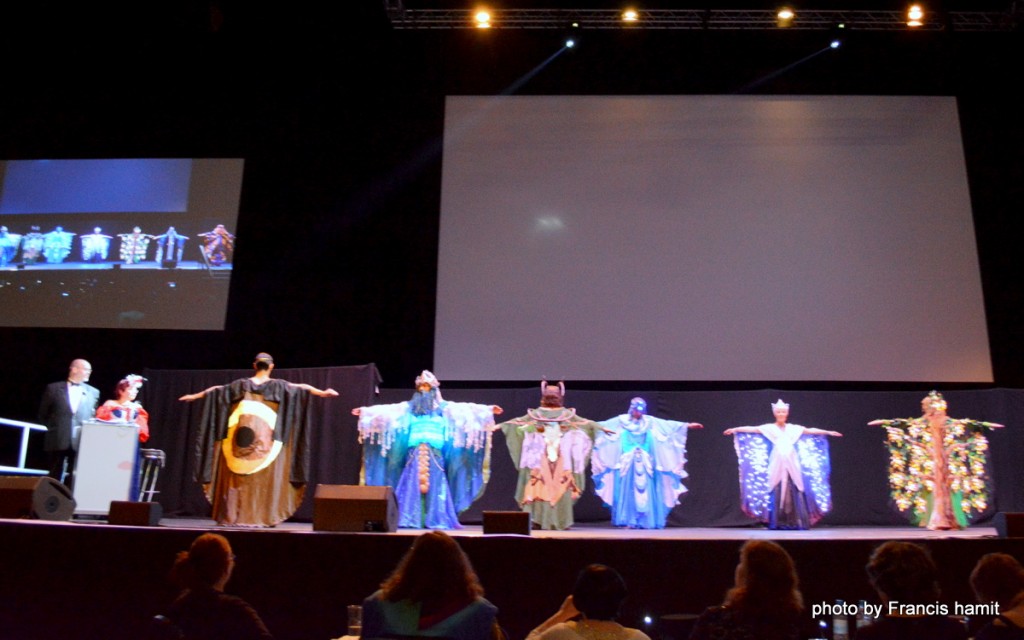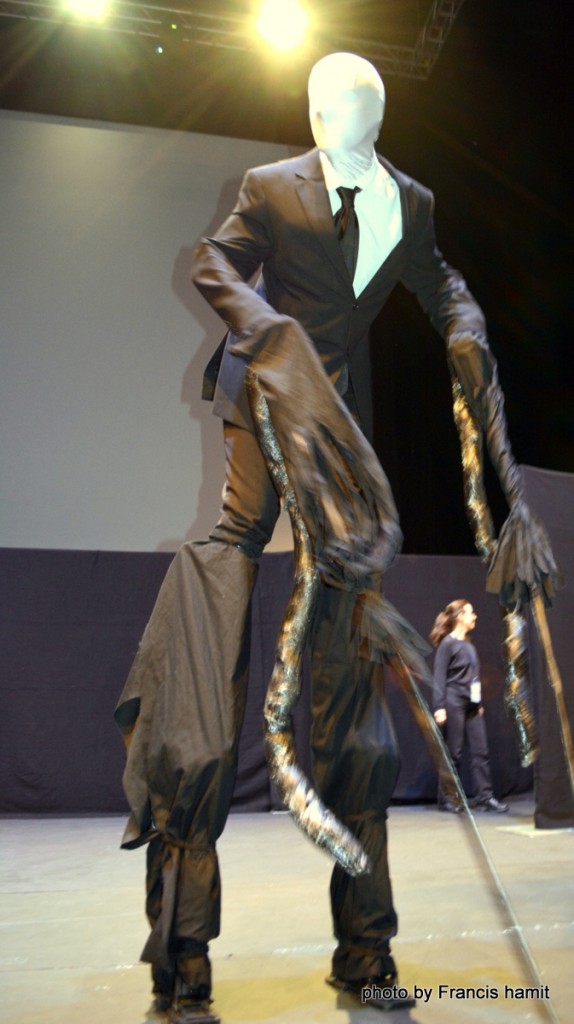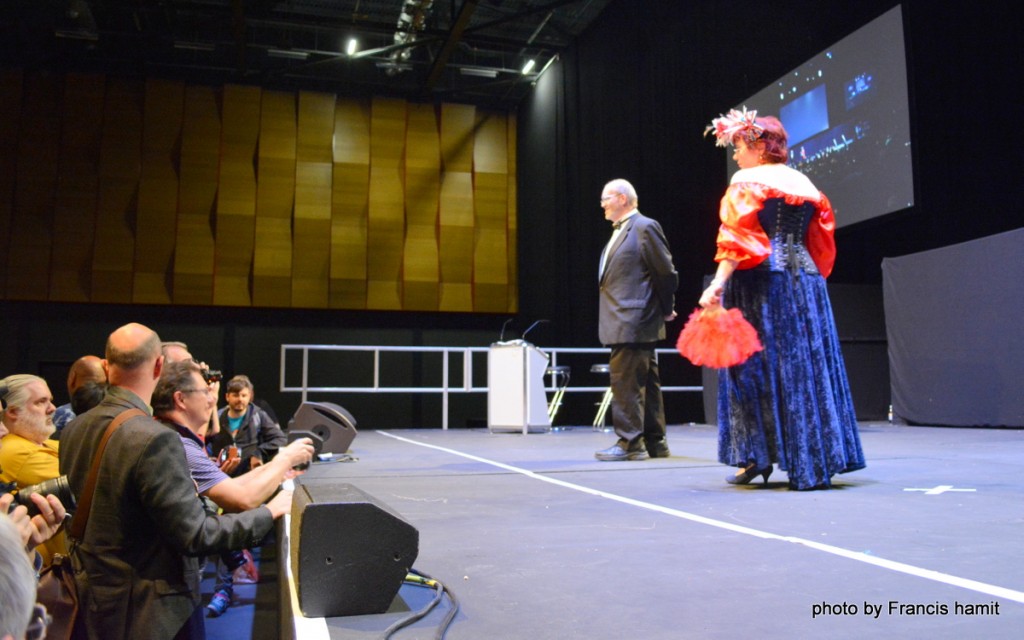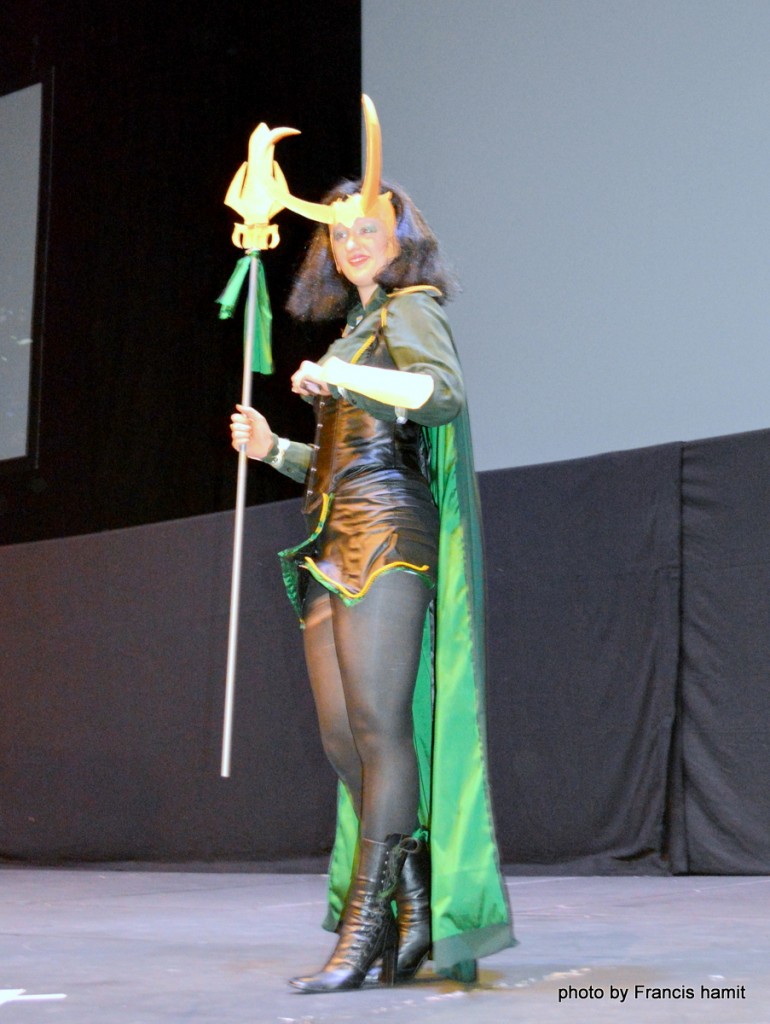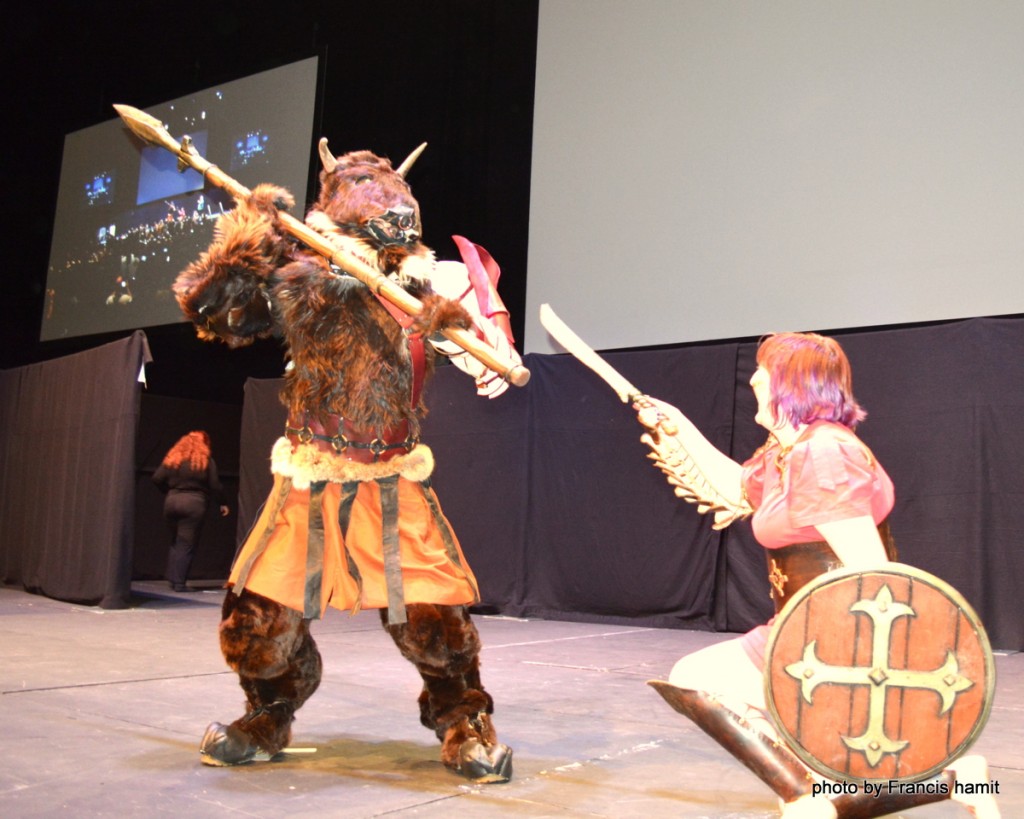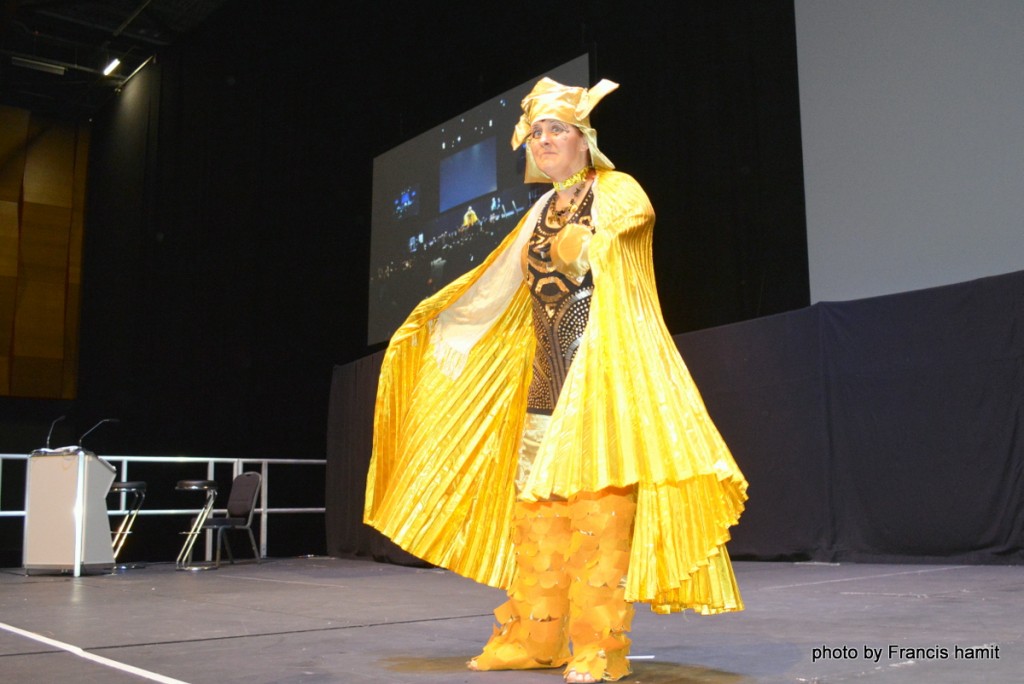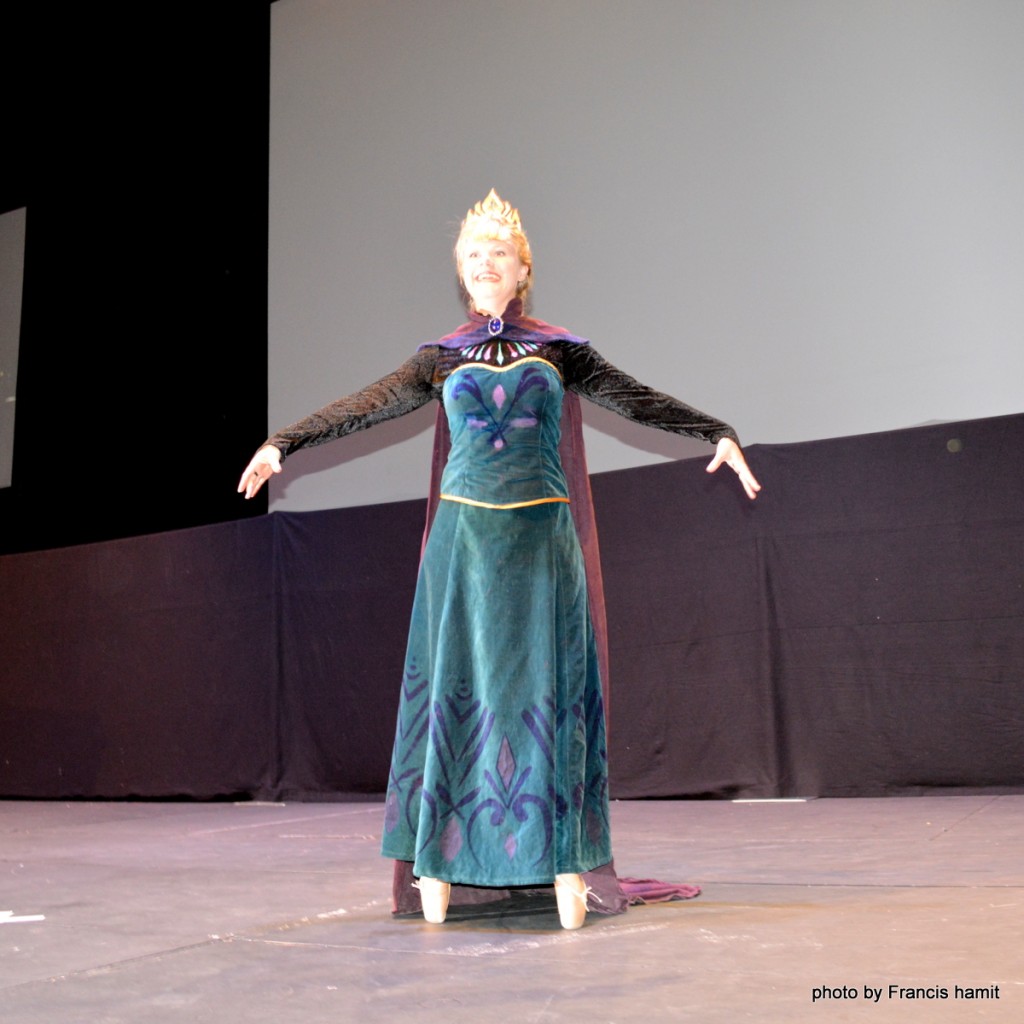First The Good News: Julie Dillon is the first woman to win the Best Pro Artist Hugo in 45 years. [*] And as I write, you can see a fine example of her work on the masthead of A Dribble of Ink, winner of the 2014 Best Fanzine Hugo.
Yes, Aidan Moher has finally won the Hugo he has coveted for so long. What we began with a certain amount of mutual irritation has evolved into a gentler, almost Fred Allen/Jack Benny-style feud (see for example here and here) – so congratulations, and better Aidan should win than a stranger!
Far more startling was to see Sarah Webb win Best Fan Artist on the first ballot while every other nominee registered fewer first place votes than No Award. For all the discussion in social media of the best way to tactically vote No Award, it’s a surprise to find that having the most impact in a category with no connection to the politics that fueled it.
And Now, The Rest of the Story: Meanwhile at Monster Hunter Nation HQ, it’s time to lie back and stop thinking of England. No matter what people hoped or feared would happen as the Hugo Awards were announced, only one of the 7 shortlisted nominees endorsed by Larry Correia finished ahead of another nominee in their category – basically, they ran last.
Corriea had asked his readers to nominate his novel Warbound plus a slate of 11 other recommendations. Warbound and 6 other beneficiaries of the “Sad Puppy” campaign made it. The most successful among them was Toni Weisskopf, who actually received the most first-place votes in the Best Editor – Long Form category, though she finished fourth in the runoff.
Correia took the high road in his Hugo Aftermath Post —
First off, some people are upset and saying there was fraud. I understand your disappointment but I truly don’t think so. In all of my dealings with LonCon they’ve been totally professional and honest. On things like Toni’s, yes, that is confusing as hell, but that is how the Australian system works. One of the original goals of Sad Puppies was to test the Hugo nomination process just because there had been allegations of “lost” noms in prior, and as a retired auditor, I’m a sucker for statistical analyses. SP1 gathered data, and SP2 gave me comparisons. I saw zero indication of fraud. I’ve only been awake for an hour, so I’ve only skimmed the new numbers, but they appear to have shaken out about where expected. So don’t get mad at LonCon, they did their job (and as I can attest, getting accused of fraud without evidence is annoying as hell.)
He followed by explaining yet again why he thought his “Sad Puppies” campaign was justified and how the voting results prove his point – because it’s not as if he was going to suddenly smack his forehead and exclaim, “Wait, I was wrong!”
In the general exchange of social nukes set off by “Sad Puppies” it was a surprise (though by no means a disappointment) that No Award failed to take a single Hugo category.
Furthermore, the nominees receiving the most first place votes in a category tended to win wire-to-wire.
Suspense mounted in the Best Novel category leading up to the vote because no one could predict the impact of Larry Correia’s voting bloc or the strength of support for the Wheel of Time series, while Ann Leckie’s Ancillary Justice, despite winning the Nebula, seemed handicapped by the publisher’s refusal to put the complete book in the Hugo Voter Packet.
The suspense was unwarranted, as it turns out. Ancillary Justice began with a comfortable lead, getting 1,335 first place votes. The Wheel of Time series had the next largest number of first place votes, 658. However, Wheel of Time finished in fourth place in runoff voting.
There were only a couple of really tight races.
Lightspeed Magazine won the Best Semiprozine Hugo by 16 votes. Two UK-based publications, Strange Horizons and Interzone, hung with Lightspeed Magazine for the first four passes, however, the home-field advantage did not hold true. When Interzone was eliminated almost one-third of its votes dropped out (having listed neither of the survivors in next place) and the remaining votes were divided almost equally between Interzone and Hugo-winner Lightspeed.
Only in a few cases did the eventual winner ever trail. In Best Novella, “Six-Gun Snow White” had a 14 vote edge on “Equoid” after four rounds, but lost by 83.
In Best Dramatic – Long Form, “The Rains of Castamere” was only 11 votes ahead of “The Day of the Doctor” after the fifth pass, but picked up a majority of the votes left after Orphan Black was eliminated, and won by a comfortable margin.
In Best Pro Editor – Long Form, Ginjer Buchanan trailed Toni Weisskopf by 7 votes after the third pass, but ended up winning by over 200 votes.
The “Who are you mad at?” index shows more voters listed the following nominees behind No Award than any others (except for Toni Weisskopf, who is included for comparison, and Wheel of Time which was controversial for a different reason.) (Not ranked in order).
| Sad Puppies Finalists | Runoff votes | No Award |
| Warbound | 1161 | 1052 |
| The Chaplain’s Legacy | 999 | 602 |
| The Butcher of Khardov | 1222 | 687 |
| The Exchange Officers | 1146 | 736 |
| Opera Vita Aeterna | 855 | 1232 |
| Toni Weisskopf | 568 | 186 |
| Elitist Book Reviews | 510 | 334 |
| Wheel of Time | 1306 | 672 |
But if the “Sad Puppies” say they had it tough, just show them the “take no prisoners” mentality at work in the fan categories. Many finalists got fewer first place votes than No Award — the fate of 4 out of 5 nominees for Best Fan Artist, 4 out of 7 nominees for Best Fancast, 3 out of 5 nominees for Best Fan Writer, and 1 out of 5 nominees for Best Fanzine.
Turning to the nominating statistics, Vox Day compiled this list of the number of nominating votes that put each of the “Sad Puppies” on the ballot, and scoffed at the supposed “bloc vote” —
Larry Correia 184 (Best Novel)
Toni Weisskopf 169 (Best Professional Editor – Short Form)
Brad Torgersen: 111 (Best Novella)
Dan Wells 106 (Best Novella)
Brad Torgersen 92 (Best Novelette)
Vox Day 69 (Best Novelette)
Sarah Hoyt 38 (failed to make final ballot for Best Short Story)
Just the same, the bloc vote for Vox Day’s Opera Vita Aeterna kept Ken Liu’s “The Litigation Master and the Monkey King” off the ballot.
Paging through the rest of the nominating statistics I observed that Neil Gaiman, by declining a nomination for The Ocean at the End of the Lane, allowed Mira Grant’s Parasite on the ballot – it finished third.
Ender’s Game came within six votes of being shortlisted for Best Dramatic Presentation – Long Form. With another couple of nominating votes, two more Doctor Who episodes could have been finalists in Short Form (which would have thrilled my friends who run Gallifrey, I’m sure.)
On a personal level I found it rather surrealistic to see that in the Best Fanzine category the next five top vote-getters after the finalists were essentially the zines that would have been on the final ballot just a couple years ago – Banana Wings, The Drink Tank, Argentus, SF Signal and File 770. Time marches on.
Update 08/19/2014: As Arnie Fenner points out in his comment below, Diane Dillon, along with husband Leo, won the Hugo for Best Artist in 1969 and deserves the “first-ever” designation, though Julie Dillon’s win is still a breakthrough since she is the first woman to win the Best Artist Pro Hugo in 45 years.



